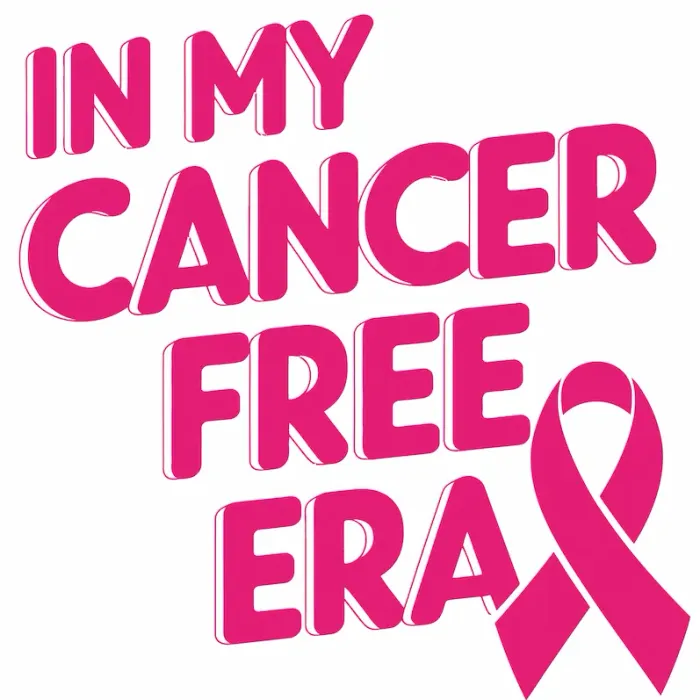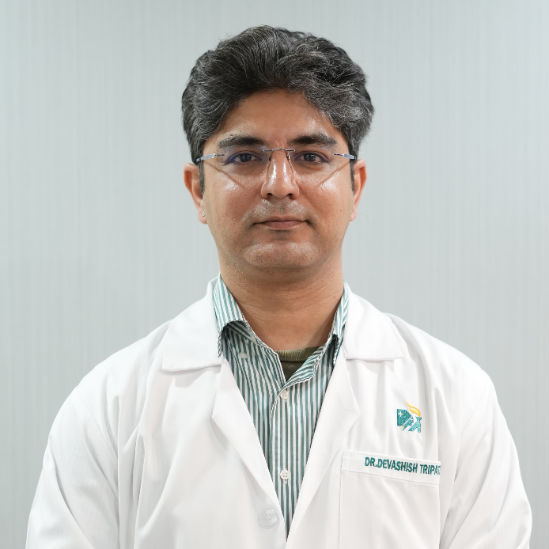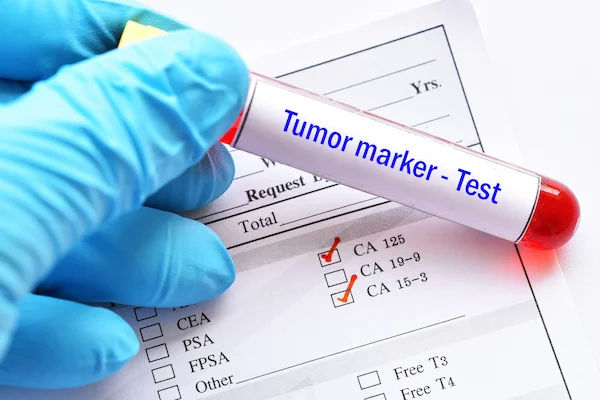A New Era of Hope: The Latest Advances in Cancer Treatment
Advances in cancer treatment are transforming survival and quality of life with precision medicine, innovative therapies and cutting-edge technology. Learn how these developments are reshaping the future of cancer care.

Written by Dr. Md Yusuf Shareef
Reviewed by Dr. Shaik Abdul Kalam MD (Physician)
Last updated on 13th Jan, 2026

Introduction
For decades, a cancer diagnosis was met with a limited set of tools: surgery, chemotherapy and radiation. While these treatments have saved countless lives, they often came with significant side effects because they could not always distinguish between healthy cells and cancerous ones. Today, the landscape of cancer treatment is evolving at an unprecedented pace. There is a shift away from a one-size-fits-all approach towards a more sophisticated, personalised strategy.
This guide explores the most exciting advances in cancer treatment, from therapies that empower your immune system to cutting-edge technologies that allow for unparalleled precision. These innovations are improving survival rates and enhancing quality of life for patients during and after treatment. Understanding them can provide hope and help you make informed decisions with your healthcare team.
The Shift from One-Size-Fits-All to Personalised Cancer Care
Modern oncology is increasingly focused on tailoring treatment to each patient’s specific cancer profile. Key developments include:
• Cancer is now understood as hundreds of diseases driven by specific genetic mutations.
• Precision medicine uses diagnostic tests to identify DNA alterations (biomarkers) in a tumour.
• Treatment is tailored to the individual’s cancer biology, increasing effectiveness and reducing side effects.
• Targeted therapy is an example of this personalised approach.Consult Top Oncologists
Harnessing the Body’s Defences: The Revolution in Immunotherapy
Immunotherapy has transformed cancer care by enabling the immune system to recognise and attack cancer cells. Major approaches include:
Checkpoint Inhibitors: Taking the Brakes Off the Immune System
Checkpoint inhibitors release the immune system’s “brakes,” empowering T-cells to fight cancer:
• Drugs like pembrolizumab and nivolumab are used for melanoma, lung, and kidney cancers.
• Some patients achieve long-term remission even in advanced disease stages.
CAR T-Cell Therapy: Engineering a Patient's Own Cells to Fight Cancer
CAR T-cell therapy modifies a patient’s T-cells to target cancer directly:
• T-cells are collected and genetically engineered to recognise specific cancer proteins.
• The engineered cells are multiplied and infused back into the patient, acting as a “living drug.”
• Particularly effective in blood cancers like leukaemia and lymphoma.
Cancer Vaccines: Preventive and Therapeutic Potential
Vaccines are playing an evolving role in cancer prevention and treatment:
• Preventive vaccines, such as HPV, protect against cancer-causing infections.
• Therapeutic vaccines stimulate the immune system to attack existing cancer cells, with personalised mRNA vaccines showing promise in clinical trials.
Targeting the Enemy: The Precision of Targeted Therapy
Targeted therapy focuses on the specific molecules that drive cancer growth. Key points include:
• Biomarker Testing: Tumour tissue or liquid biopsy identifies mutations such as EGFR or HER2.
• Targeted Drugs: Block specific proteins driving cancer, such as imatinib for BCR-ABL in chronic myeloid leukaemia.
Reduces harm to healthy cells compared to chemotherapy.
Smarter, Sharper, and More Precise: Advances in Localised Treatments
Advances in surgery and radiation have improved outcomes and recovery:
• Minimally Invasive and Robotic-Assisted Surgeries: Smaller incisions, faster recovery, less blood loss, improved organ preservation.
• Advanced Radiation Techniques: IMRT and SBRT shape beams precisely to tumours; proton therapy deposits energy within the tumour, sparing healthy tissue.
The Power of Information: How AI and Liquid Biopsies are Changing the Game
Emerging technologies are enhancing early detection and treatment planning:
• Liquid Biopsies: Non-invasive blood tests detect tumour DNA, monitor treatment response, and identify mutations.
• Artificial Intelligence: Improves image analysis, detects subtle patterns, and supports personalised treatment planning.
Improving Quality of Life: Advances in Supportive Care
Modern cancer care focuses on both survival and well-being:
• Better management of side effects, including anti-nausea medications, pain control, and nutritional support.
• Online consultations allow timely guidance from healthcare providers.
How to Access Cutting-Edge Treatments: Understanding Clinical Trials
Clinical trials are essential for testing new therapies and may provide early access:
• Eligibility depends on cancer type, stage, previous treatment, and biomarker testing.
• Discuss options with your oncologist to determine potential participation.
Conclusion
The field of oncology is undergoing a transformative period. Advances such as immunotherapy, targeted therapy, and AI-powered diagnostics are changing the outlook for many patients. Modern cancer care focuses not only on survival but also on improving quality of life. Personalised treatment plans allow doctors to target the disease more effectively while minimising side effects.
If you or a loved one faces a cancer diagnosis, seek care from a multidisciplinary team that can use these modern tools. Ask about biomarker testing, available therapies, and clinical trial options. Remember, you are not alone, and the medical community is committed to advancing care. Booking a consultation with an oncologist through Apollo24|7 is a practical first step towards personalised cancer treatment.Consult Top Oncologists
Consult Top Oncologists

Dr. Amit Choraria
Surgical Oncologist
18 Years • MBBS, MS (Surgery) Fellow, Surgical Oncology, Tata Medical Center (FSO) Fellow, European Board of Surgery (Surgical Oncology) (FEBS) Fellow, Minimal Access Surgery (FMAS) Fellow, Indian Association of Gastrointestinal Endosurgeons (FIAGES) UICC Fellow, Royal Marsden NHS, London, UK Visiting Scholar, Plastic Reconstructive Surgery, CGMH, Taiwan Fellow, Robotic Surgical Oncology, Vattikuti Foundation, USA
Kolkata
Apollo Multispeciality Hospitals , Kolkata, Kolkata

Dr. Sanchayan Mandal
Medical Oncologist
17 Years • MBBS, DrNB( MEDICAL ONCOLOGY), DNB (RADIOTHERAPY),ECMO. PDCR. ASCO
Kolkata
MCR SUPER SPECIALITY POLY CLINIC & PATHOLOGY, Kolkata

Dr Gowshikk Rajkumar
Oncologist
10 Years • MBBS, DMRT, DNB in Radiation oncology
Bengaluru
Apollo Clinic, JP nagar, Bengaluru

Ms. Hiba Siddiqui
Oncologist
13 Years • BA (Hons), MA, Professional Certification Psycho-oncology, PhD
Delhi
Apollo Hospitals Indraprastha, Delhi

Dr Devashish Tripathi
Radiation Specialist Oncologist
20 Years • MBBS, PLAB, MRCP (UK)- General Medicine, FRCR (Oncology), Certificate of Completion of Training (CCT)- Clinical Oncology
Delhi
Apollo Hospitals Indraprastha, Delhi
Consult Top Oncologists

Dr. Amit Choraria
Surgical Oncologist
18 Years • MBBS, MS (Surgery) Fellow, Surgical Oncology, Tata Medical Center (FSO) Fellow, European Board of Surgery (Surgical Oncology) (FEBS) Fellow, Minimal Access Surgery (FMAS) Fellow, Indian Association of Gastrointestinal Endosurgeons (FIAGES) UICC Fellow, Royal Marsden NHS, London, UK Visiting Scholar, Plastic Reconstructive Surgery, CGMH, Taiwan Fellow, Robotic Surgical Oncology, Vattikuti Foundation, USA
Kolkata
Apollo Multispeciality Hospitals , Kolkata, Kolkata

Dr. Sanchayan Mandal
Medical Oncologist
17 Years • MBBS, DrNB( MEDICAL ONCOLOGY), DNB (RADIOTHERAPY),ECMO. PDCR. ASCO
Kolkata
MCR SUPER SPECIALITY POLY CLINIC & PATHOLOGY, Kolkata

Dr Gowshikk Rajkumar
Oncologist
10 Years • MBBS, DMRT, DNB in Radiation oncology
Bengaluru
Apollo Clinic, JP nagar, Bengaluru

Ms. Hiba Siddiqui
Oncologist
13 Years • BA (Hons), MA, Professional Certification Psycho-oncology, PhD
Delhi
Apollo Hospitals Indraprastha, Delhi

Dr Devashish Tripathi
Radiation Specialist Oncologist
20 Years • MBBS, PLAB, MRCP (UK)- General Medicine, FRCR (Oncology), Certificate of Completion of Training (CCT)- Clinical Oncology
Delhi
Apollo Hospitals Indraprastha, Delhi
More articles from Cancer
Frequently Asked Questions
Q1. What is the difference between immunotherapy and chemotherapy?
Chemotherapy directly kills rapidly dividing cells, both cancerous and some healthy cells. Immunotherapy boosts the body’s immune system to recognise and destroy cancer cells, sometimes leading to longer-lasting responses.
Q2. Are these new cancer treatment options available to everyone?
Availability depends on cancer type, stage, biomarker testing results, and local regulatory approval. Some treatments are primarily available via clinical trials, while others are becoming standard care.
Q3. What are the side effects of advanced treatments like immunotherapy?
Side effects often involve inflammation in organs such as the colon, lungs, liver or skin. These are usually manageable with early detection and treatment.
Q4. How can I find out if I am eligible for a targeted therapy?
Eligibility is determined by biomarker testing of tumour tissue or liquid biopsy. Your oncologist can guide you through this process.
Q5. Is proton beam therapy better than traditional radiation?
Proton therapy is preferable for cancers near critical organs, such as in children or tumours close to the brain or spinal cord. For other cancers, precise traditional radiation may be equally effective.




